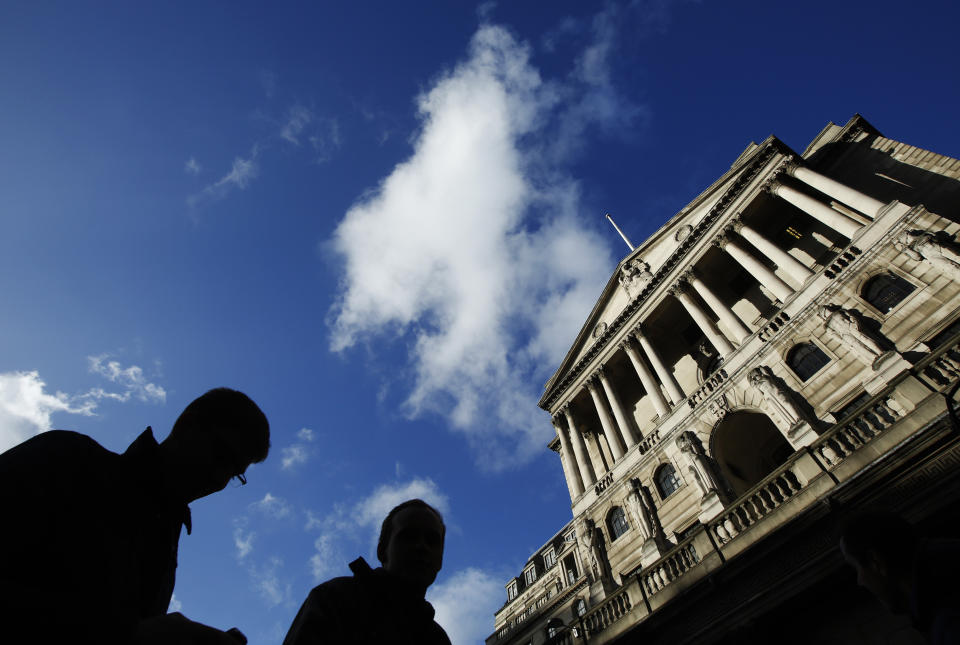Bank of England: UK economy to have biggest annual decline in 100 years

The Bank of England (BOE) on Thursday held both its benchmark interest rate and the size of its bond-buying programme steady, but warned that the UK’s economic output would not return to its pre-pandemic levels until at least the end of 2021.
Announcing the decision, the bank said it expected the UK’s gross domestic product (GDP) to shrink by 9.5% this year, the worst contraction in a century.
Since the onset of the coronavirus crisis, the bank’s Monetary Policy Committee has already twice cut its benchmark interest rate to 0.1% from its previous level of 0.75%.
The bank voted unanimously against expanding asset purchases, having voted for a £100bn ($131bn) increase in June that took the target of its Asset Purchase Facility to £745bn.
READ MORE: What is a V-shaped economic recovery?
Though it said that the economic blow of the pandemic would be less severe than it predicted in May, the bank nonetheless warned that the UK’s GDP would be 20% lower at the end of the second quarter of 2020 than it was at the end of 2019.
And though some indicators suggested spending had recovered “significantly,” it said that its central projection was that the recovery would take some time partly due to “persistently weaker supply capacity.”
The bank was also more upbeat about the country’s labour market than it was previously, and said that the unemployment rate would peak at just 7.5% this year before gradually declining.
The bank’s decision to maintain its current monetary policy stance came in spite of its projection that the UK inflation rate would fall to around 0.25% this year due “the direct and indirect effects of COVID-19,” far below its 2% target.
“The committee will continue to monitor the situation closely and stands ready to adjust monetary policy accordingly to meet its remit,” the bank said.
READ MORE: Conservative peer tells UK government to ditch benefit cuts next year
Though inflation unexpectedly rose to 0.6% in June, the economic effects of the pandemic are widely expected to precipitate a further slowing of growth in consumer prices, primarily due to lower energy prices and temporary VAT cuts.
“The bank now forecasts that UK GDP will return to its 2019 levels by the end of next year, meaning it’s expecting two lost years of growth for the UK. It’s buoyed by the fact that people are getting out and spending more, no doubt fuelled by the summer holidays and lots of people staycationing,” said Laura Suter, an analyst at AJ Bell.
“However, the bank paints a bleaker picture on the outlook for employment and business spending and cautions that the UK’s future is ‘unusually uncertain’ thanks to the continued spread of the coronavirus,” she said.
Listen to the latest podcast from Yahoo Finance UK

 Yahoo Finance
Yahoo Finance 
